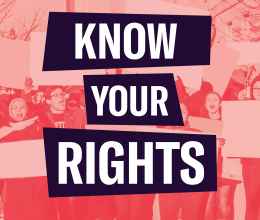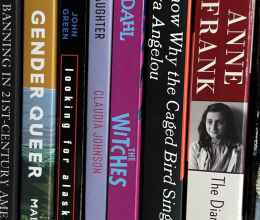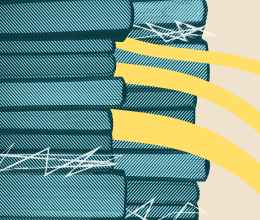CHICAGO - The American Civil Liberties Union and a group of prominent media organizations have asked the Illinois Supreme Court to uphold a 2007 state law that permits ordinary citizens to speak out on questions of public policy without fear of expensive, lengthy, retaliatory lawsuits brought by the subjects of their speech. The request comes in an amicus curiae brief filed recently by the ACLU of Illinois, the Illinois Press Association, the Illinois Broadcasters Association, and the Public Participation Project. In the case, Sandholm v. Kueker, et.al., the free speech advocates ask the Court to uphold the 2007 Illinois Citizen’s Participation Act (CPA), a measure designed to encourage free speech for members of the public.
The CPA grants individuals and organizations a conditional immunity when they are sued for speaking out on governmental action. Such lawsuits have come to be known as “Strategic Lawsuits Against Public Participation” or SLAPPs. Such suits inhibit the ability of speakers to continue their advocacy on a matter of public concern by diverting their scarce resources into costly and time-consuming litigation. The threat of such suits deters other speakers from expressing their views on matters of public concern. One recurring kind of SLAPP in Illinois and elsewhere occurs when real estate developers bring retaliatory litigation against residents who petitioned government to prevent the development. For example, in a 2003 case in McHenry County brought by a developer against citizens who opposed annexation of land for new construction, the legal fees for the defendants (in a case that was eventually dismissed) ran in excess of $300,000.
Responding to these sorts of circumstances, the Illinois General Assembly in 2007 adopted the CPA to ensure all voices could be heard in public policy discourse. In the brief supporting the CPA before the Illinois Supreme Court, the ACLU of Illinois and the media groups refute an argument that the CPA does not balance the rights of persons to file lawsuits for injury to their reputations and the rights of individuals and organizations to speak freely in public policy discussions. The brief notes that “the CPA creates a conditional immunity for petitioning speech, to protect it from the grave and imminent danger of retaliatory litigation. If the plaintiff can prove by clear and convincing evidence that the defendant’s petitioning speech was ‘not genuinely aimed at procuring favorable government action’ then the CPA allows the suit to proceed.”
The Sandholm v. Kueker case grows out of a citizen-led effort to remove a high school basketball coach at Dixon High School. After the coach was removed, he filed a lawsuit against several parents and a radio station where parents spoke against the coach. The trial court dismissed the lawsuit under the provisions of the CPA. An Illinois appeals court upheld that decision.
The brief filed by the media groups and the ACLU of Illinois also note that other states with similar statutes have been upheld in court challenges.
“The protections contained in the CPA are critical to ensure that the public can speak on matters of public policy without the fear of protracted litigation,” said Adam Schwartz, senior staff counsel of the ACLU of Illinois. “We hope the Court will act to uphold these protections.”
Lawyers for the ACLU of Illinois wrote the brief in conjunction with cooperating attorneys Leah Bruno and Kristen Rodriguez of the Chicago office of SNR Denton.




